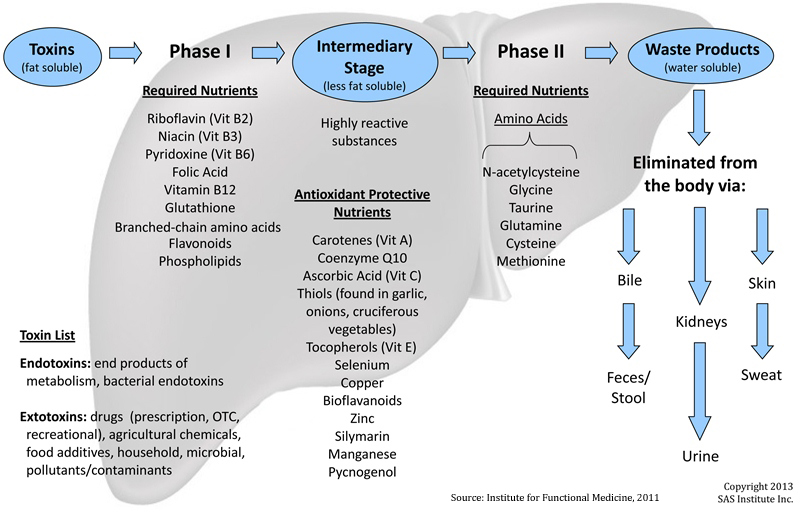Have you ever wondered what exactly your liver does and how it supports your health? Read on to find out all about the functions of the liver, foods to support your liver, lifestyle advice and the intricate nutrients and processes involved in liver metabolism.
Functions of the Liver:
- Detoxification of drugs, medications, chemicals, toxins, poisons
- The production of bile (which digests fats)
- Storage of nutrients and vitamins such as vitamins A, D, E, and K
- Glycogen (sugar) storage
- Red blood cell storage
- Contributes to energy production via breaking down fats, proteins and carbohydrates
- Plasma protein production for blood
- Hormone metabolism- production, recycling, break down, excretion
Foods to include to support the health and functioning of your liver
- Turmeric – supports in reducing inflammation and preventing liver damage via acting as an antioxidant and improving detoxification processes. Try including turmeric latte powders, fresh turmeric root or powder in your meals and drinks– aim for 1-2 teaspoons a day
- Add in fresh or dried herbs like rosemary, basil, coriander and parsley to your meals – herbs provide antioxidants and nutrients to support health
- Omega 3’s – these support in reducing inflammation and supporting liver function – include algae oil, walnuts, chia seeds, and flaxseeds daily
- Protein- essential for detoxification processes and is needed to conjugate and bind to wastes allowing their excretion. Foods to include: tofu, tempeh, legumes, nuts, seeds, lentils, chickpeas
- Garlic and onion – these foods contain sulphur compounds which act to support the actions of liver enzymes and support detoxification processes
- Broccoli, rocket, and cauliflower – these support liver function, modulate hormone levels, reduce liver damage and inflammation
- Complex, whole grain carbohydrates – these assist in supporting detoxification pathways via providing essential nutrients required for these complex processes to occur. Swap out your white rice, bread and pasta for quinoa, whole grain bread, oats, sourdough bread and pulse pasta.
- Fresh fruits and vegetables – these provide antioxidants and nutrients such as beta-carotene and vitamin C which can reduce inflammation and help in preventing any damage to the liver
- Bitter foods – act to support bile production and assist in removing wastes – Include: rocket, arugula, lemon/lime juice, endive, chicory, silver beet, cos lettuce, and dandelion leaves
Lifestyle tips
- Reduce alcohol and smoking
- Limit the intake of excess salt, sugar and saturated fats
- Exercise – find a type of exercise you enjoy and include it 2-5 times a week
- Include mindfulness and stress management techniques daily
Herbal Medicines –
- St Mary’s Thistle – this powerful herb has actions as an antioxidant, anti-inflammatory and liver protectant. St Mary’s Thistle has even been found to support patients following poisoning with toxic mushrooms to assist in reversing liver damage and improving detoxification.
- Turmeric – as mentioned above turmeric is a powerful anti-inflammatory agent. It reduces oxidative stress and supports in regenerating other antioxidants to reduce damage. It supports bile production and overall digestive tract health.
- Globe Artichoke – artichoke as a liquid extract is useful in supporting bile production and release to aid detoxification and digestion. It also reduces liver damage and assists in restoring optimal liver function. Globe artichoke may also reduce cholesterol levels to improve cardiovascular and metabolic health via preventing the synthesis of cholesterol and enhancing excretion.
- Schisandra – this herb acts to protect the liver, reduce inflammation and oxidative stress and also assists in improving the body’s response to stress. It has mild mood lifting and anxiety reducing actions and can assist in improving your physical and mental stamina.
- These are just a few but there a many more wonderful herbs such as dandelion root and bupleurum which can support liver health – chat to your naturopath about these.
The complex processes of the liver –
The liver is responsible for many important processes in the body, implicating the importance of looking after your liver – it also needs a lot of nutrients to perform these tasks. Read on below for an outline of the processes the liver undertakes daily.
Phase 1 – this involves the conversion of toxic, non-polar, lipid-soluble metabolites (such as drugs, medications, food additives, cleaning agents, agricultural and microbial agents) into polar, water-soluble compounds. These intermediary compounds are still quite harmful to the body, however this conversion step is essential for their excretion. For this to occur multiple chemical reactions must occur which require the following nutrients – B2, B3, B6, B9, B12, glutathione, amino acids, phospholipids and flavonoids. In this process harmful free radicals are released. This highlights the importance of including antioxidants in your diet so your body has the tools to reduce their impact. Here are some examples of antioxidants which can support in reducing any damage – vitamin A, C, E, zinc, selenium, copper, manganese, coenzyme Q10, bioflavonoids, pycnogenol and silymarin (from St Mary’s Thistle which we discussed above).
Phase 2 – this involves the conversion of the intermediate products into polar, water-soluble substances which are able to be excreted via the faeces and urine. These chemical reactions require amino acids and proteins in order to occur.

Image via https://blogs.sas.com/content/efs/2013/08/14/foods-for-natural-detox/
As you can see your liver is important for so many reactions and processes. Supporting the health of your liver is extremely important for overall health and can be done in many ways. Book in a consult with our naturopaths Candace and Monique to support your liver with herbal and nutritional medicine.

